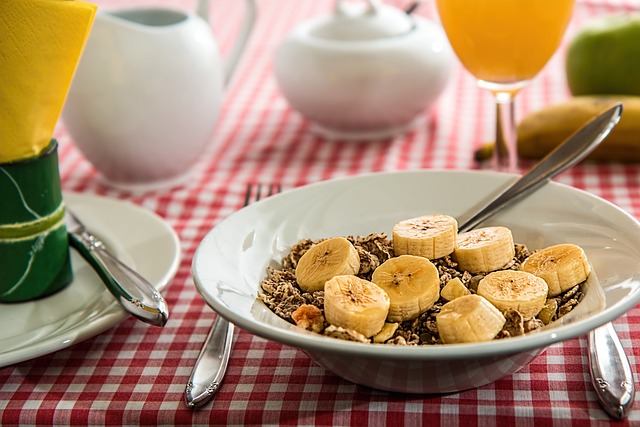Gut Check: Harnessing the Potential of Probiotics for a Healthy Gut Microbiota
Our gut is home to trillions of microorganisms, collectively known as the gut microbiota. These tiny living organisms play a crucial role in maintaining our overall health and well-being. From aiding digestion to boosting our immune system, the gut microbiota is an essential component of our body.
However, factors like an imbalanced diet, stress, certain medications, and illnesses can disrupt the delicate balance of our gut microbiota, leading to various health issues. This is where probiotics come into the picture.
Understanding Probiotics
Probiotics are live bacteria and yeasts that provide health benefits when consumed in adequate amounts. Unlike the harmful bacteria that can cause infections and diseases, probiotics are beneficial for our gut health. They work by promoting the growth of good bacteria, restoring the balance of the gut microbiota.
Probiotics can be found in various foods, such as yogurt, kefir, sauerkraut, kimchi, and other fermented foods. They can also be taken in the form of supplements.
The Benefits of Probiotics
Probiotics offer a wide range of benefits for our gut microbiota and overall health:
- Improved Digestion: Probiotics help break down food and absorb nutrients more efficiently, reducing the risk of digestive disorders like constipation, diarrhea, and irritable bowel syndrome (IBS).
- Boosted Immunity: A significant portion of our immune system resides in the gut. Probiotics strengthen the immune response, helping to fight off harmful pathogens and reducing the risk of infections.
- Reduced Inflammation: Imbalances in the gut microbiota can lead to chronic inflammation, which is linked to various health conditions like inflammatory bowel disease (IBD), allergies, and autoimmune diseases. Probiotics help alleviate inflammation and promote gut health.
- Enhanced Mental Health: Mounting evidence suggests a strong connection between the gut and the brain, often referred to as the gut-brain axis. Probiotics may help improve mood, reduce symptoms of depression and anxiety, and support overall mental well-being.
- Weight Management: Certain strains of probiotics can help with weight loss and weight management by influencing the breakdown of dietary fats and regulation of appetite.
- Improved Skin Health: Probiotics can benefit the skin by reducing inflammation, preventing acne, and promoting a healthy complexion.
Choosing the Right Probiotic
When selecting a probiotic supplement or food, it’s important to consider the following:
- Strain Specificity: Different strains of bacteria have different properties and benefits. Look for strains that have been scientifically studied and proven effective for the intended health concern.
- CFU Count: CFU (Colony Forming Units) indicates the number of viable bacteria or yeast in a probiotic product. Higher CFU counts generally ensure better colonization and effectiveness.
- Quality and Packaging: Choose reputable brands that employ proper manufacturing and packaging techniques to ensure the viability of the probiotics until the expiry date.
- Storage Requirements: Some probiotics require refrigeration, while others can be stored at room temperature. Make sure to follow the storage instructions provided by the manufacturer.
- Compatibility: Consult with a healthcare professional or nutritionist to determine the best probiotic strain and dosage for your specific health needs, especially if you have any underlying health conditions.
Integrating Probiotics into Your Routine
To harness the potential of probiotics for a healthy gut microbiota, consider incorporating these practices into your daily routine:
- Consume Probiotic-Rich Foods: Include foods like yogurt, kefir, kimchi, sauerkraut, and other fermented foods in your diet to naturally introduce probiotics.
- Take Probiotic Supplements: If you have specific health concerns or dietary restrictions, consider taking probiotic supplements under the guidance of a healthcare professional.
- Eat a Balanced Diet: Support the growth of beneficial bacteria by consuming a diet rich in fruits, vegetables, whole grains, and fiber.
- Reduce Stress: Chronic stress can negatively







